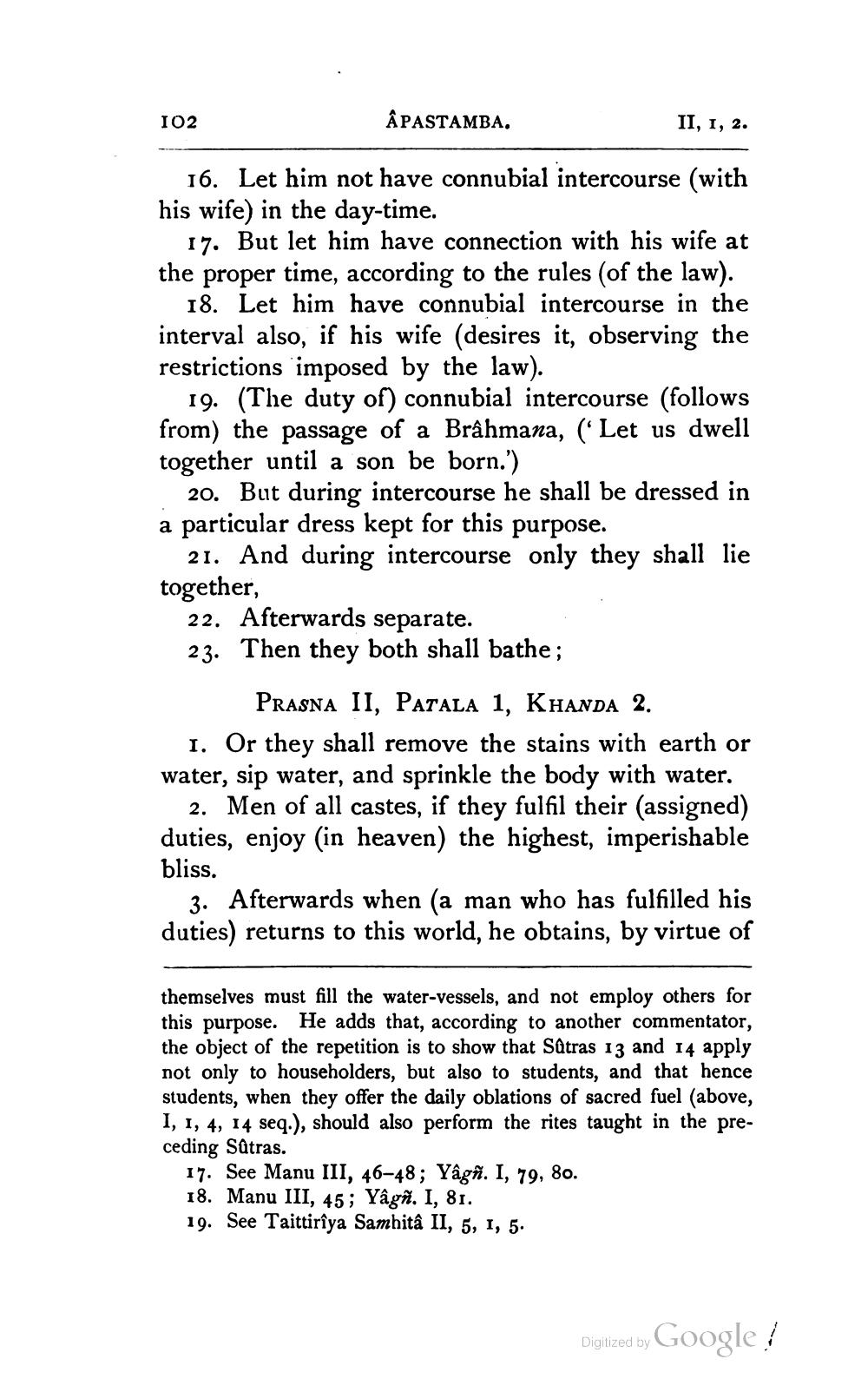________________
102
ÂPASTAMBA.
16. Let him not have connubial intercourse (with his wife) in the day-time.
17. But let him have connection with his wife at the proper time, according to the rules (of the law).
18. Let him have connubial intercourse in the interval also, if his wife (desires it, observing the restrictions imposed by the law).
19. (The duty of) connubial intercourse (follows from) the passage of a Brâhmana, ('Let us dwell together until a son be born.')
II, 1, 2.
20. But during intercourse he shall be dressed in a particular dress kept for this purpose.
21. And during intercourse only they shall lie together,
22. Afterwards separate.
23. Then they both shall bathe;
PRASNA II, PATALA 1, KHANDA 2.
1. Or they shall remove the stains with earth or water, sip water, and sprinkle the body with water.
2. Men of all castes, if they fulfil their (assigned) duties, enjoy (in heaven) the highest, imperishable bliss.
3. Afterwards when (a man who has fulfilled his duties) returns to this world, he obtains, by virtue of
themselves must fill the water-vessels, and not employ others for this purpose. He adds that, according to another commentator, the object of the repetition is to show that Sutras 13 and 14 apply not only to householders, but also to students, and that hence students, when they offer the daily oblations of sacred fuel (above, I, I, 4, 14 seq.), should also perform the rites taught in the preceding Sutras.
17. See Manu III, 46-48; Yâgn. I, 79, 80.
18. Manu III, 45; Yâgn. I, 81.
19. See Taittirîya Samhitâ II, 5, 1, 5.
Digitized by
Google!




